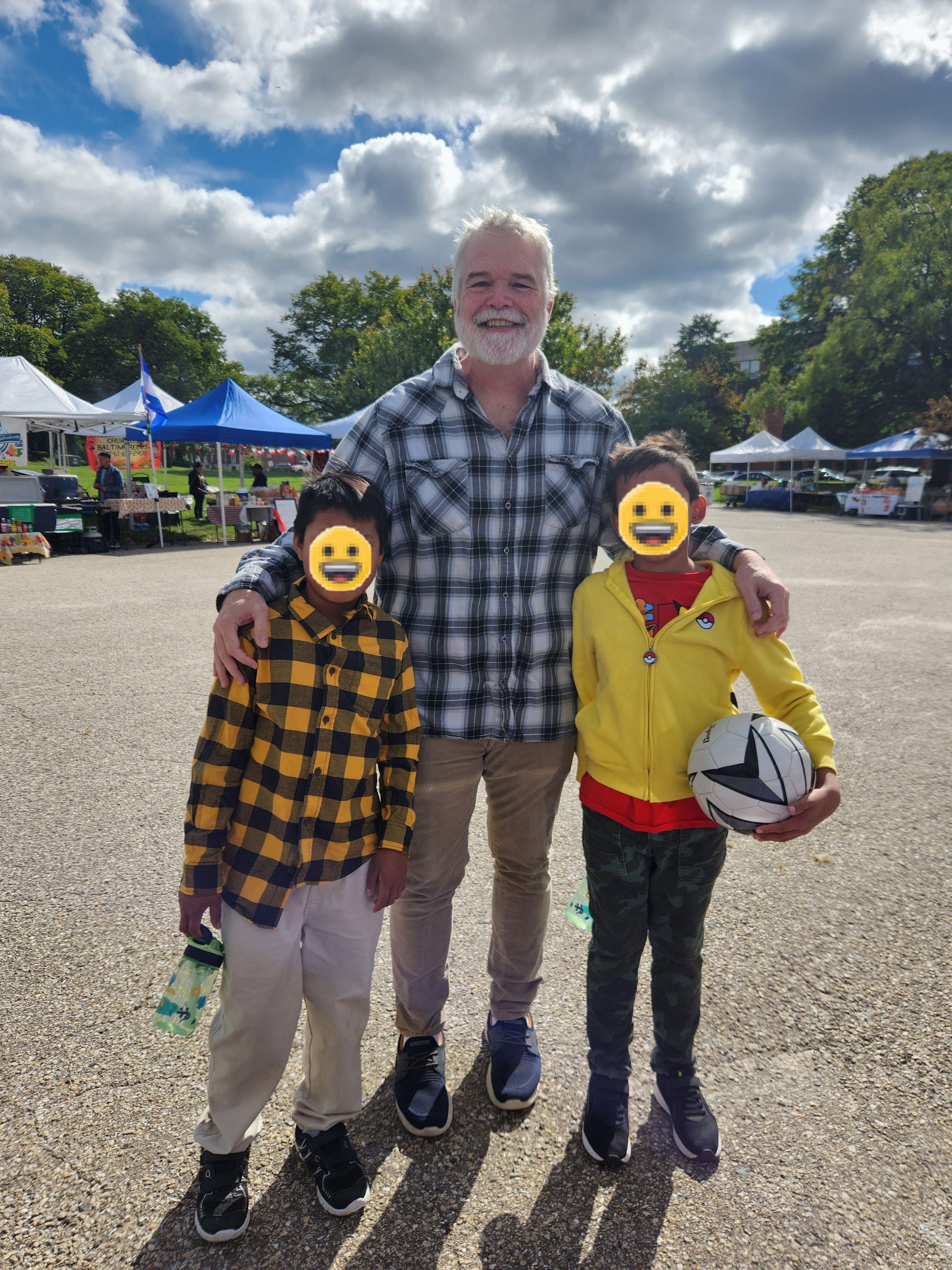
Lutheran Social Services of the National Capital Area (LSSNCA) plays a crucial role in providing transitional (short-term) foster care to unaccompanied children in Northern Virginia and Maryland. For 50 years, LSSNCA has been committed to serving unaccompanied refugee children , with dedicated foster parents at the heart of our mission
Jason, a dedicated foster parent in Baltimore, has been providing transitional care since 2023. He shares his experience with us, highlighting the significant impact that dedicated foster parents can have on restoring childhood for unaccompanied children who endure adversity.
Jason’s Journey in Transitional Foster Care
For the past year, I’ve had the privilege of providing transitional foster care (TFC) in Baltimore. As a gay man, adoption has always been a compelling option for me. From a young age, I dreamt of having a family, and as I grew older, I realized that fostering and adoption were feasible paths. My work in the nonprofit sector exposed me to foster care, and I was drawn to the idea of offering support to children who, through no fault of their own, find themselves displaced and in need of a caring environment. So, I thought, I have the will, the heart, and the desire.
Expectations
Entering the world of foster care, I was prepared for potential challenges and managed my expectations. As a single gay man, I anticipated facing suspicion and pushback. I was well aware of the barriers I might encounter and had low expectations of being accepted. However, once I was enrolled [with LSSNCA], I felt surprisingly welcomed.
My goal was to create a welcoming home despite the preconceived notions about what a family should look like. I knew that the children coming into my care might have expectations of a traditional family structure, and I worked hard to make them feel comfortable and safe.
My first experience in 2023 was with a 7-year-old boy from Ecuador. As someone without prior experience as a parent, I was initially nervous. However, upon his arrival, it was clear that his immediate needs were basic: safety, empathy, shelter, and food. He quickly adapted, and I found that providing these essentials made him feel at home.
The Adjustment Period
The first week with a child in transitional foster care can be challenging. Many children arrive with a lot of emotions and experiences that have not been processed yet and are understandably reserved. They have endured significant hardships to get to this point and face uncertainty about what comes next. For instance, I once [fostered] a girl with severe separation anxiety who constantly wanted to be with her grandmother, who was back in her home country, no matter where she was.
Children in transitional care often experience high levels of anxiety and exhaustion, both physically and emotionally. In this program, most children stay with me while they [await news regarding] reunification with their families. Some kids are sad to leave, while others are excited to reconnect with their loved ones. Regardless, I’m always thrilled to see them return to their families.
The Joy of Transitional Care
My role as a transitional foster parent is to prepare children for reunification. This involves creating an environment where they can experience joy and feel safe, knowing that their next step is to return to their families. It’s a beautiful experience to help facilitate this transition and to be a part of their journey to healing and reconnection.
I know a lot of people who ask about how to deal with attachment as we provide transitional foster homes. I want to reframe that question and have people worry more about the kid's attachment with us, not us with them. Our job is to get them ready for reunification, we drop them off. That is an incredibly beautiful experience to be able to facilitate that. To keep a kid happy during the wait time. To give them a space to allow them to fully experience joy without trauma and reassure them they are safe until they get reunified and that you helped make that possible is such a blessing.
One of the most fulfilling aspects of this role is seeing the children enjoy their childhood despite the difficult circumstances they have faced. Many of the kids I’ve welcomed are from South and Central America and have taken on adult responsibilities from a young age. Despite their challenging pasts, I strive to provide them with a fun and playful environment. Their daily lives should be filled with joy and play. Soccer is a universal favorite sport to play among them, and activities like visiting the aquarium, craft nights, and enjoying the local harbor are always a hit.
Looking Forward
I believe it’s crucial to take breaks between placements to maintain my own well-being. My intention is to continue fostering for as long as I can, knowing that each placement is an opportunity to make a positive impact on a child’s life.
Overall, transitional foster care has been a profoundly rewarding experience for me. It’s about creating a space where children can feel safe, experience joy, and prepare for their next step in life. Despite the challenges, the opportunity to facilitate reunification and see children thrive is a blessing I cherish deeply. Transitional foster care also provides a unique opportunity to understand what long-term fostering might entail and I encourage you all to join the program.
To celebrate 50 years of assisting unaccompanied children, LSSNCA has launched a campaign to raise $50,000 by September 30. Your support will help sustain and expand our programs, ensuring we can continue to provide essential care and support to unaccompanied children. Donate today.
If you are interested in providing either short-term or long-term care for unaccompanied refugee minors, please fill out this interest form, and our team will be in touch.
